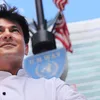'Sharing is forever caring' - the inspiring story of masterchef Vikas Khanna and the Feed India food drive
In his new book, ‘Barkat’ (abundance), masterchef and humanitarian Vikas Khanna shares the buildup to his food drive during India’s pandemic. Here are some insights and takeaways.
Launched in 2012, YourStory's Book Review section features over 325 titles on creativity, innovation, entrepreneurship, and digital transformation. See also our related columns The Turning Point, Techie Tuesdays, and Storybites.
‘Barkat: The inspiration and story behind one of the world’s largest food drives, FEED INDIA’ traces the journey of Michelin-starred Indian chef Vikas Khanna. It captures influences such as the spirit of generosity infused by his grandmother, and experiences in the langar community kitchens of the Golden Temple.
From tradition to migration, the book is packed with stories, vivid descriptions of life in India and the US, and a range of life lessons. Vikas studied at the Welcomgroup Graduate School of Hotel Administration, Culinary Institute of America, Cornell University, and Le Cordon Bleu, Paris.
He is the host of TV shows MasterChef India, Twist of Taste, and Mega Kitchens, and has been a guest on MasterChef Australia and Gordon Ramsay's Kitchen Nightmares. Vikas is now based in New York city.
Here are my seven clusters of takeaways from this 150-page book, which includes over 50 photographs as well. See also my reviews of the related books How I Quit Google to Sell Samosas, Why I Stopped Wearing My Socks, Funding your Startup, Young Turks, I Love Mondays, and Social Entrepreneurship in India.

The power of stories
The book’s lessons are packed in stories. “My whole cooking foundation was laid in humble stories,” Vikas recalls.
For example, his grandmother would tell him the story of Akshaya Patra, the bowl of infinite food. It was given to the Pandavas when they were going on exile.
“Even if you are poor, it doesn’t matter, as long as you are willing to share whatever you have,” she would say. She would also tell him not to complain about wasps on the lemon tree because the tree belongs to all creatures, and that her lemon pickles also contain the blessings of her ancestors.
Vikas describes the operator of the flour grinding machine as a “snowman” because he would often be covered in flour. “The memory of this smell of freshly ground flour has been an irreplaceable part of my life,” he describes.
His grandfather told him that there were some special kitchen utensils upstairs in their home which were used to serve food for people of all communities in the pre-Partition days. The utensils were eventually sold off, but Vikas would go on to later open a museum on utensils.
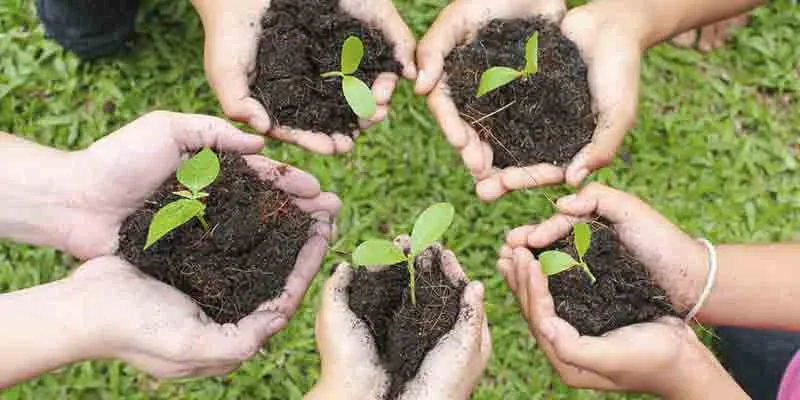
The joy of community
Vikas recalls the celebrations during the Baisakhi harvest festival and its joyous community spirit. His fondest attachment was to the langar, the community kitchen of the Golden Temple in Amritsar.
“I would just stand there looking at everything and smiling at everyone, understanding that power of togetherness, the power of solidarity,” Vikas writes. The stories shared by the volunteers and visitors there also left an everlasting impression on him.
“Some days we are givers, and some days we are receivers,” he adds. This captures the notion of humility, balance and equaliser. “Food is nothing without sharing,” he adds.
Later in college years, Vikas was also impressed by the massive community kitchen at the Krishna temple in Udupi and Mother Teresa’s kitchen in Calcutta. In his early years in the US, he also discovered the power of community kitchens for the homeless at the New York Rescue Mission.
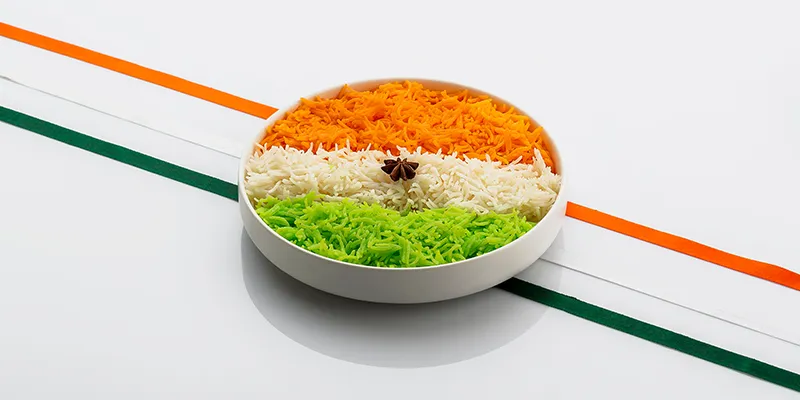
Food as experience and culture
Food is accompanied by stories, emotions, and cultural practices. “You cannot disconnect memories, pain, sorrows, happiness, and generosity from a kitchen,” Vikas affirms.
Food is infinite in its dimensions, though it is often reduced to a single dimension in a recipe. Vikas also narrates childhood experiences of the power of sitting and eating together, while watching Ramayana on TV.
“What we eat is part of our cultural identity; what we share is part of our cultural fabric. Food represents our past, present, and future,” Vikas eloquently describes.
“Cooking is an expression of love, it cannot be anything else,” he writes, recalling the compliments his grandmother would receive for her rotis.
His college education in South India opened him up to the sheer diversity of Indian cuisine. His friends introduced him to local delicacies like idli with jackfruit inside.
“There’s no bigger vision than understanding that it takes the entire universe to grow a grain of rice, that the entire universe’s power is inside that little seed,” Vikas writes, as he later embarked on a film project.

Passion and quality
From his teenage years, Vikas developed a flair for cooking, and would get paid for making kulchas or dahi-bhalla for friends and relatives. He also mastered cooking with the tandoor.
“This was the beginning of all the little things coming together,” he recalls. His first business in Amritsar was called Lawrence Kitchen, named after a place his grandparents knew in Lahore.
His early lessons were in how to keep a balance between business and charity while running a commercial operation. One of his uncles noticed his passion for cooking, and urged his parents to support a career as a chef instead of following his brother’s footsteps in engineering.
A visit to Maurya Sheraton in Delhi was an eye-opener, and Vikas went on to study in Manipal. His passion and honesty made a mark, and he went on to train in Nepal, Delhi, and Bombay.

Ups and downs
Vikas also recalls the ups and downs of his life’s journeys, such as the pain during Operation Blue Star and the hope in the aftermath.
“Whatever you’re going through, if you’re going to have resilience and faith, you will always come back stronger,” he emphasises.
“Hope will always be there with people who have positive energy,” his grandmother advised him.
During the 1992 riots in Bombay, a kind Muslim woman gave Vikas refuge with her family when he was lost. “This was God’s way of showing me a side of India which is beautiful, which shelters everyone without asking any questions,” he gratefully acknowledges.
“Remember that that’s your family too. Your success will also belong to her,” his grandmother reminded him.
When he went through a rough business patch in Amritsar, his brother reminded him of Jonathan Livingston Seagull who learnt to fly higher but also came back to inspire the whole community of seagulls. Vikas went on to pursue higher studies and become a chef in New York.
Despite some of the hardships and prejudices he experienced in the US and France, what kept him going were mottos like “They came to bury me. They forgot that I was a seed.”
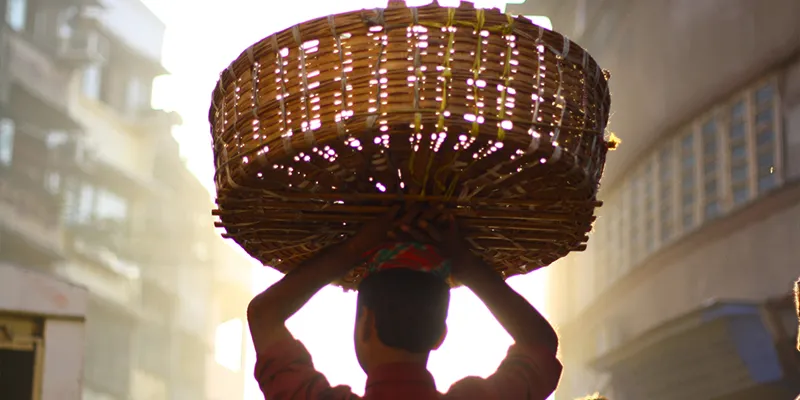
Giving back
In New York City, Vikas founded Tulsi Caterers, Sanskrit Culinary Arts, and the restaurant Spice Route. He also priced cheaper meals for Indian students, feeding their nostalgia for home food.
In the aftermath of the Asian tsunami, Vikas organised a fundraiser drive called New York Chefs Cooking for Life. The momentum came from the spirituality of his growing-up years, he describes.
Vikas began to see himself not just as a chef but as an ambassador for Indian food and Indian culture in the West. He describes his book Utsav as a culinary journey of India through food stories. It included a story on one of the biggest festivals of transgenders in India, a community who is marginalised though they bless many important occasions of society.
“Even though I was born in a Hindu family, we celebrated everything in Hinduism as well as all the Sikh festivals, Eid, Christmas, and Mahavir Jayanti,” Vikas recalls.
When he was awarded a Michelin star, his grandmother reminded him: “Never wear the crown on your head all the time.” The award was just a small part of who he was; it belonged as well to the street vendors, langar volunteers, customers, and even jealous chefs who shaped him.
The heartbreaking stories of the pandemic impact in India would spur him to launch one of the world’s largest food drives, Feed India.

Crisis and perspective
In the aftermath of the 2008 recession when his cooking school had to be shut down, Vikas received inspiring advice from the Dalai Lama, whom he met through a close friend.
“There’s nothing such as an end; it’s always the beginning of something new, something fresh, something more important and significant,” Vikas recalls. He traveled to the Himalayas, and worked on a book titled Return to the Rivers.
After a shocking shooting incident at a gurudwara in Wisconsin, Vikas devoted himself to inter-faith connectivity through a documentary series called Holy Kitchens. “Food is a uniting force,” he affirms, observing food-sharing practices in Islam, especially during Ramadan.
When his food drive faced lockdown challenges and even some fraudulent scamsters in India, right in the middle of his own hectic schedule in the US, his mother helped Vikas find his moral compass.
“I want you to rise to this occasion because I have given birth to a warrior who is going to stand in the middle of the battlefield and feed India,” she said on the phone.
Spurred on, Vikas and Feed India would eventually serve over 65 million meals. Support came from the National Disaster Response Force and a host of corporate and individual supporters such as India Gate Basmati Rice, GOQii, Lalit Hotel, Keshav Foundation, Haji Ali Dargah, Vodafone India Foundation, and many others.
“I feel that the ritual of feeding people is growing into a movement. Soon, we will find a way to make this a habit,” Vikas observes.
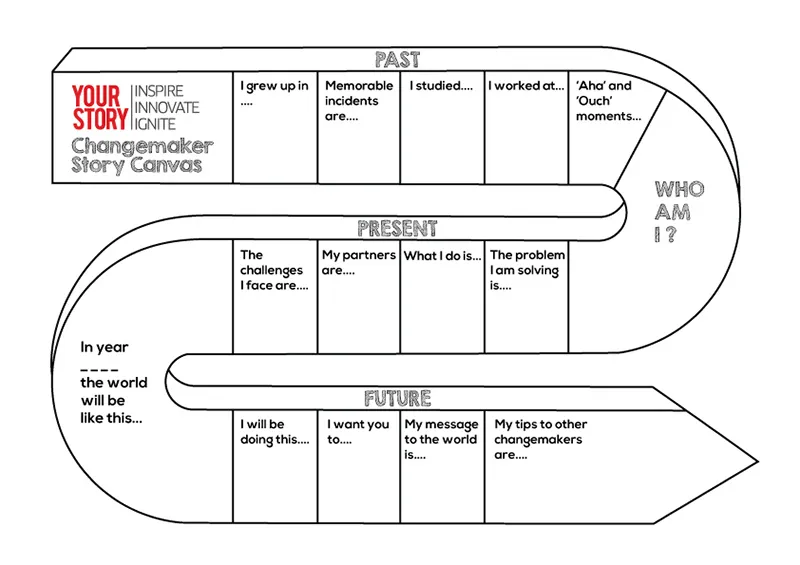
“You also have to understand that today you have the privilege of giving, which you might not have tomorrow. For me, this is the most amazing and important part of growing up in India,” he affirms.
In sum, this is a must-read book not just for entrepreneurs or food buffs, but anyone who wants to make a positive impact on the world. The message of inter-faith community is even more important in these times of increasing hate crimes, bigotry and intolerance.
“You can be in any profession, and you still have the power to feed your nation,” Vikas signs off.
Edited by Teja Lele



![[Year in Review 2021] ‘Your story is your birthright’ – 50 inspiring quotes on the power and practice of storytelling](https://images.yourstory.com/cs/2/28b451402d6a11e9aa979329348d4c3e/Storytelling-1640631162373.png?fm=png&auto=format&h=100&w=100&crop=entropy&fit=crop)
![[Year in Review 2021] Top ten changemakers of the year](https://images.yourstory.com/cs/5/79900dd0d91311e8a16045a90309d734/collage1-1639488579193.png?fm=png&auto=format&h=100&w=100&crop=entropy&fit=crop)
![[Year in Review 2021] The top 10 books of 2021 for entrepreneurs](https://images.yourstory.com/cs/2/28b451402d6a11e9aa979329348d4c3e/top-10-books-1639507512355.png?fm=png&auto=format&h=100&w=100&crop=entropy&fit=crop)
